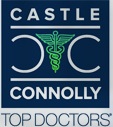
Arthritis is the #1 cause of disability in America. It isn’t just a disease of the elderly, anyone can be affected. The month of May is designated as Arthritis Awareness Month to help people get better insight on this very common, but not well understood condition.
The bone surfaces in a healthy joint are covered with articular cartilage, which is a type of connective tissue that allows the bone surfaces to glide smoothly over each other. The joint is also encapsulated by a membrane called the synovium. It produces a fluid that lubricates the joint, which is known as synovial fluid.
With osteoarthritis, which is the most prevalent form of arthritis, the major weight-bearing joints such as the hip and knee are usually affected. Patients complain of an aching pain within the joint that seems to get worse the more they are up and about on the joint. This can cause trouble with activities of daily living.
Factors that increase the risk of osteoarthritis are increased age, joint injury, repetitive activity such as in sports or manual labor, and genetics.
Osteoarthritis causes breakdown of the cartilage and narrowing of joint space, which causes friction between the bone surfaces as you move the joint. The friction triggers inflammation that causes the nerves supplying the joint to send pain signals to your brain.
With rheumatoid arthritis, which is the 2nd most common type of arthritis, the immune system causes inflammation of synovium, which causes swelling and breakdown of the joint.
The symptoms of hip and knee arthritis include pain with climbing stairs, difficulty getting in and out of a car or a chair.
When symptoms of hip and knee arthritis are not very severe, initial treatment will involve exercise, physical therapy, and weight loss. If the pain isn’t subsiding with these modalities, oral medication or injections into the joint may be used as recommended by your orthopedic doctor, and the final option for end-stage arthritis is to replace the joint.
For an accurate assessment of your hip or knee pain and a personalized treatment recommendation, please call the Advanced Joint Replacement Center at (541) 622-8900.
Dr. Yaser A. Metwally is board-certified by both the American Board of Orthopedic Surgery and the Royal College of Surgeons of Canada. He received his fellowship of Reconstructive Surgery from the Mayo Clinic in Rochester, Minnesota and specializes in hip and knee replacement surgery.




 Book an Appointment
Book an Appointment
 Patient Portal
Patient Portal
